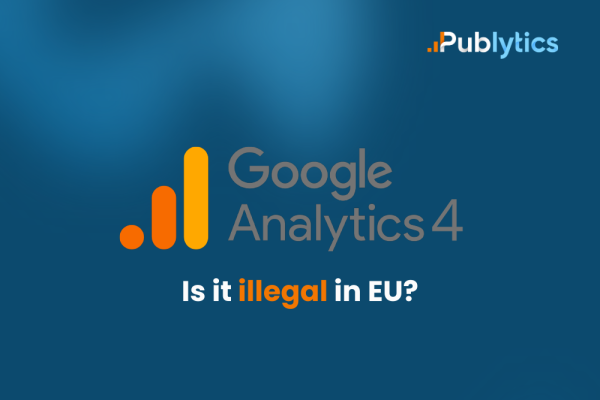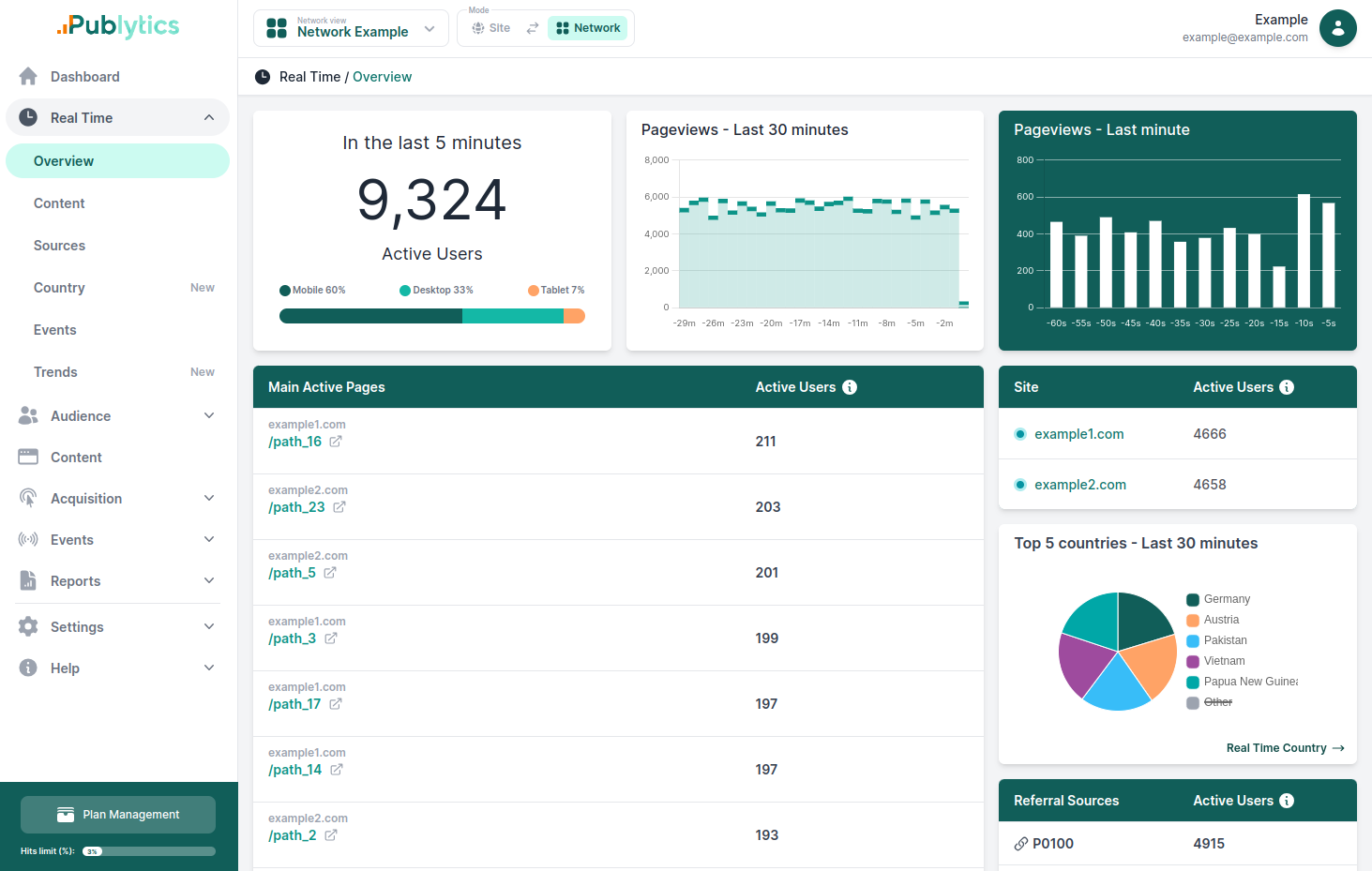Is Google Analytics Illegal in EU?
Feb 01, 2024 | Author: Info Publytics

Understanding the Legal Risks, Consequences, and Ethical Guidelines for Google Analytics in the European Union.
Google Analytics is a web analytics tool used by millions of websites around the world. It helps website owners and marketers to measure and optimize their online performance, such as traffic, conversions, bounce rate, and more. However, using Google Analytics may not be as simple and straightforward as it seems, especially in the European Union (EU).
The EU has strict regulations on data protection and privacy, such as the General Data Protection Regulation (GDPR) and the ePrivacy Directive. These laws aim to protect the rights of individuals in the EU, especially when it comes to their personal data. Personal data is any information that can identify a person, such as name, email, IP address, location, behavior, etc.
Google Analytics collects and processes personal data of website visitors, such as their IP addresses, device information, browsing history, and more. It also transfers this data to Google’s servers in the US, where it may be accessed by Google or other third parties for various purposes, such as advertising, analytics, or law enforcement. This raises several legal and ethical issues for website owners and users in the EU.
What are the legal risks of using Google Analytics in the EU?
According to several European data protection authorities, such as the Austrian DPA, the French CNIL, and the Danish DPA, using Google Analytics in the EU is illegal, unless certain conditions are met. These conditions include:
- 1) Obtaining the valid and informed consent of the website visitors before setting any cookies or collecting any personal data. This means that the website must provide clear and transparent information about what data is collected, why, how, and by whom, and offer the visitors the option to accept or reject the use of Google Analytics.
- 2) Implementing technical measures to pseudonymize the personal data before sending it to Google. This means that the website must use a reverse proxy server to mask or remove any information that can identify or relate to a person, such as IP addresses, campaign identifiers, or other identifiers.
- 3) Signing a data processing agreement with Google that specifies the roles and responsibilities of each party, the purpose and scope of the data processing, the security measures, and the rights of the data subjects. This agreement must also include the Standard Contractual Clauses (SCCs) approved by the European Commission, which are contractual safeguards for data transfers outside the EU.
- 4) Limiting the data retention period and the data sharing options in Google Analytics settings. This means that the website must set a reasonable time frame for how long the data is stored by Google, and disable any features that allow Google to use the data for its own purposes, such as advertising or benchmarking.
What are the consequences of not complying with the EU laws?
If a website uses Google Analytics in the EU without complying with the above conditions, it may face serious legal consequences:
- 1) Fines and penalties from the data protection authorities. The GDPR allows the authorities to impose fines of up to 20 million euros or 4% of the annual global turnover of the website, whichever is higher, for violating the data protection principles or the data subject rights. The ePrivacy Directive also allows the authorities to impose fines of up to 500,000 euros or 2% of the annual global turnover of the website, whichever is higher, for violating the cookie rules.
- 2) Lawsuits and claims from the data subjects. The GDPR and the ePrivacy Directive grant the data subjects the right to seek judicial remedies and compensation for any damage suffered as a result of the unlawful use of their personal data. The data subjects can also lodge complaints with the data protection authorities or join collective actions against the website.
- 3) Reputational damage and loss of trust from the customers and partners. The unlawful use of Google Analytics may harm the image and credibility of the website, as well as the relationship and loyalty of the customers and partners. The website may lose its competitive advantage and market share, as well as face negative publicity and backlash from the public.
How to use Google Analytics legally and ethically in the EU?
Using Google Analytics in the EU is not impossible, but it requires a lot of effort and caution from the website owners and operators. They must ensure that they respect the data protection and privacy rights of the website visitors, and comply with the applicable laws and regulations. They must also monitor and update their practices and policies regularly, as the legal landscape may change over time.
Some of the steps that the website owners and operators can take to use Google Analytics legally and ethically in the EU are:
- 1) Conduct a data protection impact assessment (DPIA) to identify and evaluate the risks and benefits of using Google Analytics, and the measures to mitigate the risks and enhance the benefits.
- 2) Implement a cookie banner or a consent management platform (CMP) to obtain and manage the consent of the website visitors for the use of Google Analytics, and to provide them with clear and easy options to withdraw or change their consent at any time.
- 3) Configure a reverse proxy server to pseudonymize the personal data before sending it to Google, and to ensure that the data is encrypted and secure during the transmission.
- 4) Sign a data processing agreement with Google that includes the SCCs, and review and adjust the Google Analytics settings to limit the data retention period and the data sharing options.
- 5) Inform and educate the website visitors about the use of Google Analytics, and the data protection and privacy rights that they have, through a privacy policy, a cookie policy, and other communication channels.
- 6) Respect and respond to the requests and complaints of the data subjects, such as the right to access, rectify, erase, restrict, or object to the processing of their personal data, or the right to data portability, or the right to lodge a complaint with a data protection authority.
- 7) Keep track and document the use of Google Analytics, and the compliance with the EU laws, and be ready to demonstrate and prove the compliance in case of an audit or an investigation by the data protection authorities.
A valid alternative to Google Analytics
Google Analytics is a powerful and useful tool for web analytics, but it also poses significant legal and ethical challenges for website owners and users in the EU. For those seeking a complete and privacy-friendly solution, we suggest to try Publytics. Publytics is a Google Analytics alternative that delivers real-time data, an intuitive dashboard, precise and customizable reports and multisite monitoring.
Recent Posts
-
Publytics & qiota: The integration of analytics and monetization for publishers
Feb 18, 2026 | Author: Info Publytics
-
Enhancing Data Privacy in Web Analytics
May 13, 2025 | Author: Bruno Cazzaniga
-
How to Track Logged-in Users Without GA4 and Optimize Your Strategy
Mar 31, 2025 | Author: Bruno Cazzaniga
-
Track Article Author: How to Measure Content Creation Performance
Mar 14, 2025 | Author: Bruno Cazzaniga
-
Why Your Multi-Sites Deserve a Unified Dashboard
Feb 26, 2025 | Author: Bruno Cazzaniga
Start monitoring your websites in few seconds No credit card required!
Start monitoring your websites in few seconds


